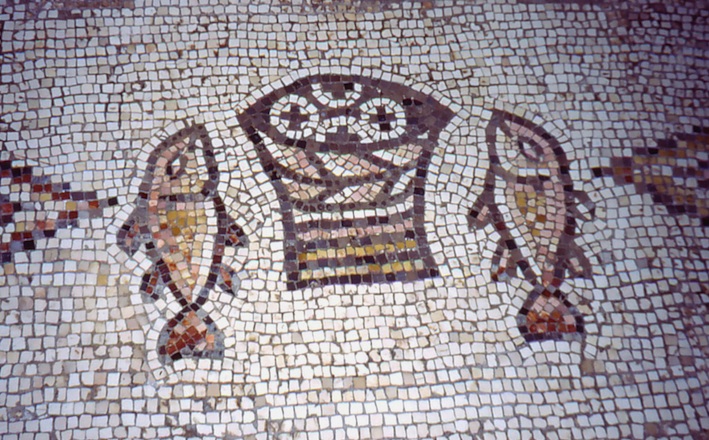Commentary on Psalm 145:8-9, 14-21
Thomas Merton once stated “Praise is cheap,” and it seems as though these words remain true today.1
We give homage to so many things that our praise is cheap. Is it also accurate to say that our praise to God is cheap? Or, that it has at least been cheapened? Perhaps.
Sometimes we praise God by talking so much that our words become hollow. Other times, we praise God as our heavenly Santa Claus who gives gifts we want. We also treat God as a street vendor with whom we can bargain: “I’ll give you praise if you will do (fill-in-the-blank)…” As the bargainer, we may even decide to keep shopping until something better comes along. Praise is cheap and at times we cheapen our praise to God. How then, do we begin to claim Psalm 145 as our own when it commits us to voice our praise to God?
Psalm 145: Function and Structure
In the Psalter, Psalm 145 serves two structural functions. It is the final David psalm (Psalms 138-145), and it is the first psalm of praise in a series that ends the Psalter (Psalms 145-150). While Psalm 145 belongs to David and expresses David’s personal commitment to worship Yahweh, the psalm is not primarily about one individual’s praise. It has a universal scope that calls the whole of creation to “praise God’s name forever and ever” (verse 2).
Two elements implicitly hint at Psalm 145’s intended universality. The first of these is its acrostic structure. With the exception of a nûn line, each line is arranged sequentially by a letter of the alphabet. Thus, the entire alphabet is “marshalled in praise of God.”2
In addition to its acrostic structure, the psalmist indicates the broad scope of intended praise through four commitments to worship. The first commitment, made in verses 1-2, is individual (“I will extol you, my God and King”). Verse 4 expresses an intergenerational commitment to praise (“one generation … to another”), and verse 10 expresses two corporate commitments to praise. The first is from creation (“all your works”) and the second from Yahweh’s followers (“all your faithful”). In the final verse (20), both individual (“my mouth”) and corporate (“all flesh”) commitments are made with the assurance they will endure through time (“forever and ever”).
The commitments in verses 1-2, 4, 10, and 20 are interspersed with specifics of Yahweh’s greatness and goodness. Verses 3-6 and 11-13b illustrate the praise of Yahweh’s greatness using bold language: might, glory, great, fame, and power. In contrast, verses 7-9 and 13c-20 capture the praise of Yahweh’s goodness, depicted through tender language: gracious, merciful, compassionate, faithful, just, and kind. The cumulative picture presented in Psalm 145 is “a many-sided though overlapping account of the nature of worship, of Yahweh’s greatness, goodness, and concrete positive involvement with humanity.”3
The Goodness of God (verses 8-9)
The passages in this week’s Lectionary text are embedded in Psalm 145’s emphasis on the goodness of Yahweh as a touchstone for praise. Like Psalm 103 and others, Psalm 145:8 borrows language from Yahweh’s self-revelation in Exodus 34:6. Yahweh is gracious, compassionate, slow to anger, and full of steadfast love. Repeated use of Yahweh in verses 8 and 9 ensures that all of these attributes point to the Lord, the curator of creation.
Verse 9 emphasizes Yahweh’s goodness and compassion to all people. Here, the word “all” seems to be uniquely inclusive. Rather than expressing a defined totality such as the nation of Israel, this passage seems to indicate that the Psalm refers to all of humanity and all of creation. Moreover, verse 9 echoes verse 1 and captures Yahweh as THE king “over all he has made,” not one king among many different kings. Walter Brueggemann suggests the rest of Psalm 145 is “best understood as an extrapolation from these verses to see how God’s characteristic self-giving is experienced in the daily blessings of creation.”4
God’s Active Care (verses 14-21)
Although the second portion of the lectionary text begins with verse 14, it may be helpful to begin reading the Psalm at verse 13c. This phrase transitions from Yahweh’s dominion and rule to Yahweh’s nurture and care for those who are frail and needy. In other words, the transcendent and powerful God is also the immanent and strengthening God.
This transition in verse 13c may seem shocking because the powerful often ignore the weak. Yet, this is an abuse of power. “As wealth is granted in order to be shared, so power is granted in order to be exercised on behalf of the needy.”5 Hence, we should not be taken aback by Yahweh’s attention to the powerless and downtrodden.
In verse 14, the psalmist gives a picture of a pro-active God who both upholds the falling and raises those who have been bowed down. It is logical to wonder why a God who keeps people from falling would allow some to become “bowed down,” but this term may be synonymous with being knocked over by someone or something. In such an instance, it is Yahweh who will give rescue to all people. Therefore, the eyes of all will look to Yahweh who provides in due time (verse 15).
Verses 15-16 portray Yahweh as the God who gives to all living things through an open hand rather than a clenched fist. Yahweh is ready to show rather than withhold favor (verse 16), and in all things Yahweh does, Yahweh is just and kind (verse 17).
In 18b, the psalmist moves the otherwise inclusive nature of the Psalm to more specific terms. Anyone can call upon Yahweh, no matter their state, as long as they call upon Yahweh “in truth.” Verse 19 continues the specificity of 18, acknowledging that Yahweh fulfills desires for all – so long as they fear Yahweh. Verse 20a follows 19, claiming Yahweh will watch over those who love Yahweh. After twenty verses affirming the greatness and goodness of Yahweh, verse 20b provides a reality check that God will “destroy the faithless to stop them from acting oppressively.”6
The final verse of Psalm 145 expresses the commitment of the psalmist and the universe to continue in praise of God. More importantly, it suggests this praise will have an everlasting, permanent quality.
Implications for Preaching
Psalm 145 is a robust doxological assertion: the individual, the community, and the whole creation is to praise God for God’s goodness and God’s greatness. We are to participate in this praise, yet we know our praise is cheap and at times cheapens God.
Within this tension, this week’s Psalm passages provide a glimpse of hope. They move us from generalized, hollow praise of God to recall specific and meaningful accounts of God’s goodness in our lives. They remind us of God’s ongoing tenderness towards us, the weak and needy, and they remind us that God’s goodness – just like God’s creation – is universal in scope (this week’s Old and New Testament narratives are perfect examples of God’s goodness). We are then called to invest in and proclaim the ongoing praise of our God the King whose selfless giving is manifest daily in each blessing of creation.
Thanks be to God!
Notes
1Commentary first published on this site on July 31, 2011.
2Adele Berlin, “The Rhetoric of Psalm 145,” in Biblical and Related Studies Presented to Samuel Iwry, ed. Ann Kort and Scott Morschauser (Winona Lake, IN: Eisenbrauns, 1985), 18.
3John Goldingay, “Psalm 145,” in Psalms, Volume 3: 90-150, ed. Tremper Longman, III, Baker Commentary on the Old Testament Wisdom and Psalms (Grand Rapids, MI: Baker Academic, 2008), 697.
4Walter Brueggemann, The Message of the Psalms: A Theological Commentary (Minneapolis, MN: Augsburg Publishing House, 1984), 29
5Goldingay, 702.
6Goldingay, 704.


August 6, 2017